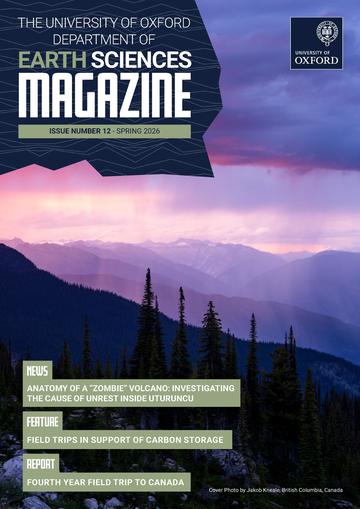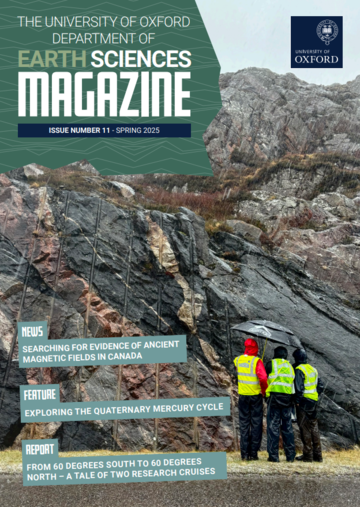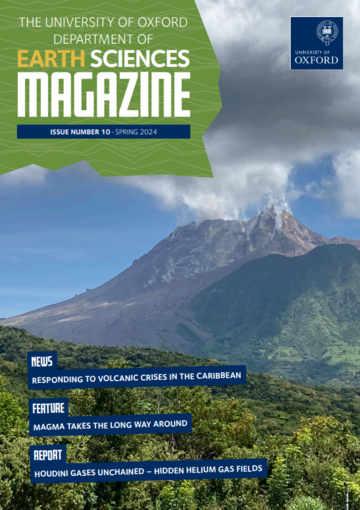Alumni
The Department has an active and close-knit alumni community, courtesy of the small numbers of students on our undergraduate and postgraduate degree programmes. We welcome all former students to take part in alumni events and receive our communications.
The Earth Sciences Magazine is distributed digitally once a year and you can read a selection of recent issues below. Our programme of alumni events are also listed below, and we welcome alumni from all years to join us for these events. Between these milestones, we regularly welcome back our alumni whenever they visit Oxford, and can coordinate building tours and meetings with faculty upon request.
If you are a member of our alumni community who would like to get in touch with the Department, you can contact our Alumni Team at alumni@earth.ox.ac.uk.
Alumni Magazine
The Earth Sciences Magazine is produced once a year and is an overview of the fantastic work happening within and around the Department. The magazine covers current research, alumni stories, student stories, our outreach work and more. If you are an alumnus of the Department, and are signed up to receive our emails, the alumni magazine will automatically be emailed to you. If you would like to check your communication preferences you can do this through the alumni login page.
Older issues of the magazine are available in the Library.
Key Events
Meeting Minds
Annually, September
Meeting Minds is the University of Oxford's alumni weekend, where alumni from all programmes are invited back to Oxford to engage in talks, discussions and networking. Faculty from the Department of Earth Sciences regularly contribute sessions to the programme. Find out more on the Meeting Minds website.
Careers Fair
Annually, November
The Careers Fair invites alumni from a broad range of career pathways and companies to speak to our undergraduate and postgraduate students. The event consists of open discussion in a fair-style setting, where alumni are invited to host a stall and/or give short career talks in our seminar rooms. If you are interested in attending please contact the Alumni Team at alumni@earth.ox.ac.uk.
Lobanov-Rostovsky Lecture in Planetary Geology
Annually, Trinity Term
Inaugurated in 2013 in recognition of the support given by Mr Nikita Lobanov-Rostovsky (BA Geology, Christ Church 1955) to the Department through the endowment of the Lobanov-Rostovsky Associate Professor in Earth Sciences, this annual public lecture examines the fundamental questions of the origin of planets, formation and deformation and geology on a global scale.
Alumni Dinner
Odd-numbered years, Spring
The Department welcomes back all our alumni for a formal dinner once every two years. All Earth Sciences alumni and their partners, current staff and students are warmly invited to join us. The event traditionally begins with talks and a drinks reception in the Department, before a dinner and speeches in a college or external venue.
Finals Party
Annually, June
The Finals Party marks the end of the academic year, when the Department says farewell to our 4th Year Undergraduates. It is comprised of a ceremony where prizes are awarded across the undergraduate year groups for their hard work. This is then followed by a BBQ on the roof terrace. Many of the student prizes are sponsored by our alumni - if you are interested in sponsoring a prize please contact our Alumni Team at alumni@earth.ox.ac.uk.
Alumni Login
You can log into the University Alumni pages via the link below. Here you can change your communication preferences and connect with other alumni.
If you have not yet created a 'My Oxford Online' account you can sign up here.
Support Us
Whether out in the field or in Oxford laboratories, it is the Department’s mission to continue to provide the best possible environment – a hub in which the world’s brightest minds and practitioners can collaborate and make ground-breaking discoveries that answer today’s most pressing questions.
We actively welcome philanthropic partners from our alumni community to support this mission.
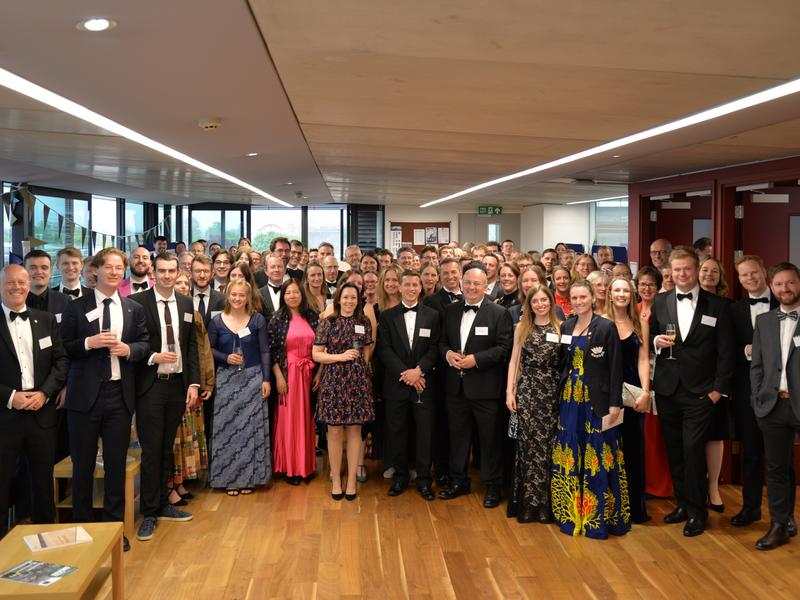
Alumni Dinner
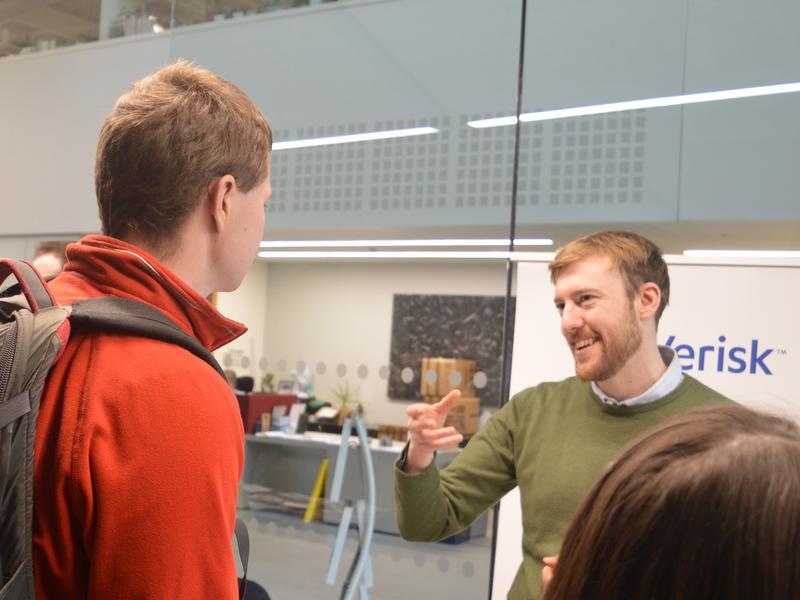
Careers Fair
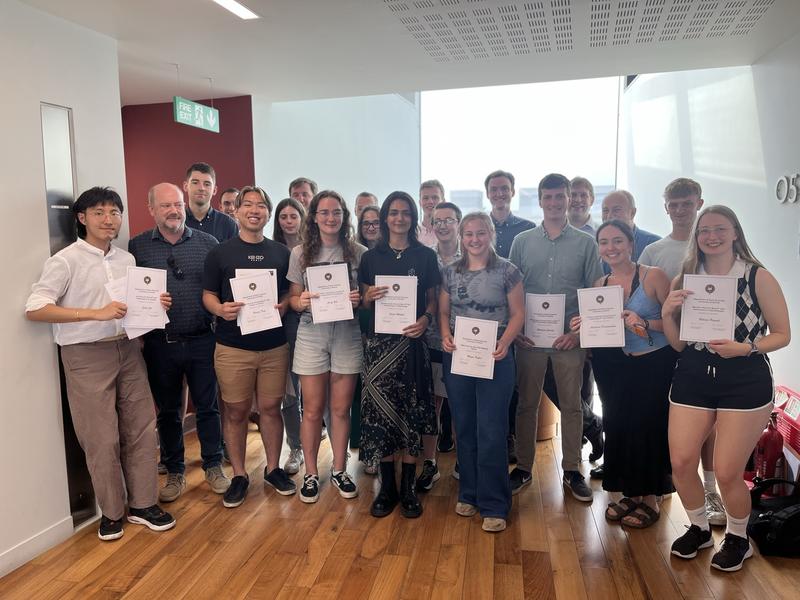
Finals Party
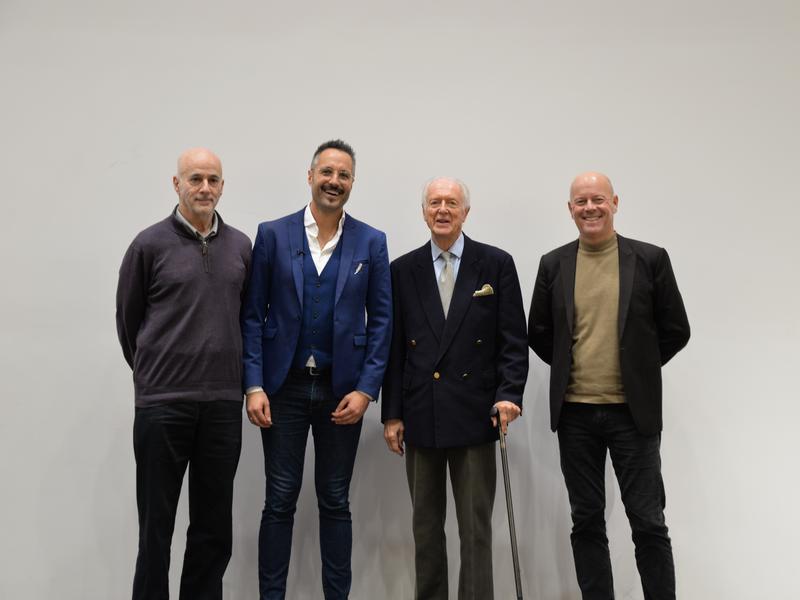
Lobanov-Rostovsky Lecture



